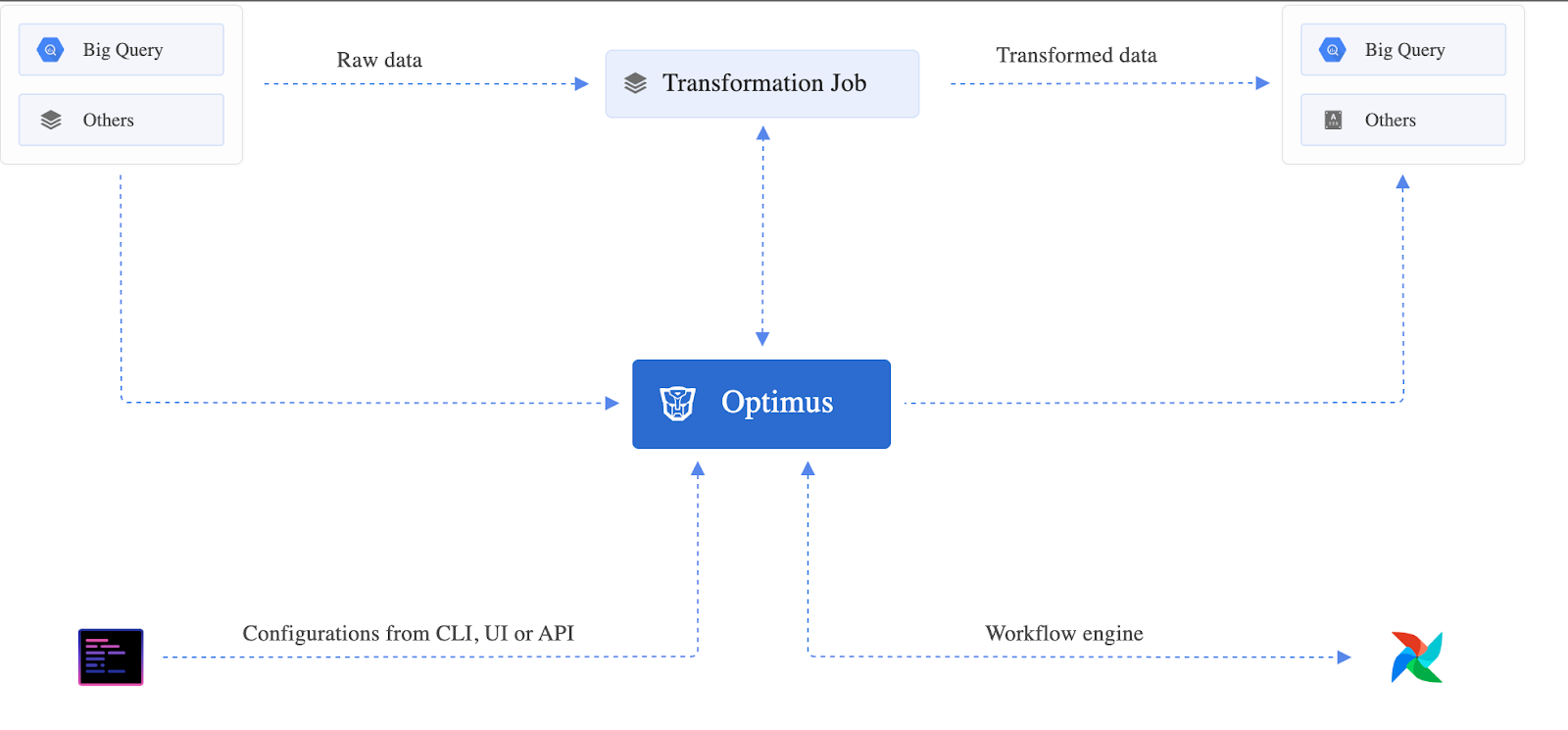Optimus
Optimus is an ETL orchestration tool that helps manage data transformation jobs and manage warehouse resources. It enables you to transform your data by writing the transformation script and YAML configuration while Optimus handles the dependency, schedules it, and handles all other aspects of running transformation jobs at scale. Optimus also supports warehouse resource management (currently BigQuery), which enables you to create, update, and read BigQuery tables, views, and datasets.

Optimus was made to be extensible. Adding support for different kinds of sources/sinks and transformation executors can be done easily. If your organization has to setup & manage data pipelines that are complex with multiple sources, sinks & there are many team members managing them, then Optimus is the perfect tool for you.
Multi-Tenancy Support
Optimus supports multi-tenancy. Each tenant manages their own jobs, resources, secrets, and configuration while optimus managing dependencies across tenants.
Extensible
Optimus provides the flexibility to you to define how your transformation jobs should behave, which data source or warehouse sink you want to support, and what configurations you need from the users. This flexibility is addressed through plugin. At the moment, we provide a BigQuery to BigQuery task plugin, but you can write custom plugins such as Python transformations.
Also, in order to provide a unified command line experience of various tools, Optimus provides extensions support on client side through which you can extend the capabilities for example providing governance.
Automated Dependency Resolution
Optimus parses your data transformation queries and builds a dependency graph automatically without the user explicitly defining the same. The dependencies are managed across tenants, so teams doesn’t need to coordinate among themselves.
In-Built Alerting
Always get notified when your job is not behaving as expected, on failures or on SLA misses. Optimus supports integrations with slack & pagerduty.
Verification in Advance
Minimize job runtime issues by validating and inspecting jobs before submitting them which enables them for faster turnaround time when submitting their jobs. Users can get to know about job dependencies, validation failures & some warnings before submitting the jobs.